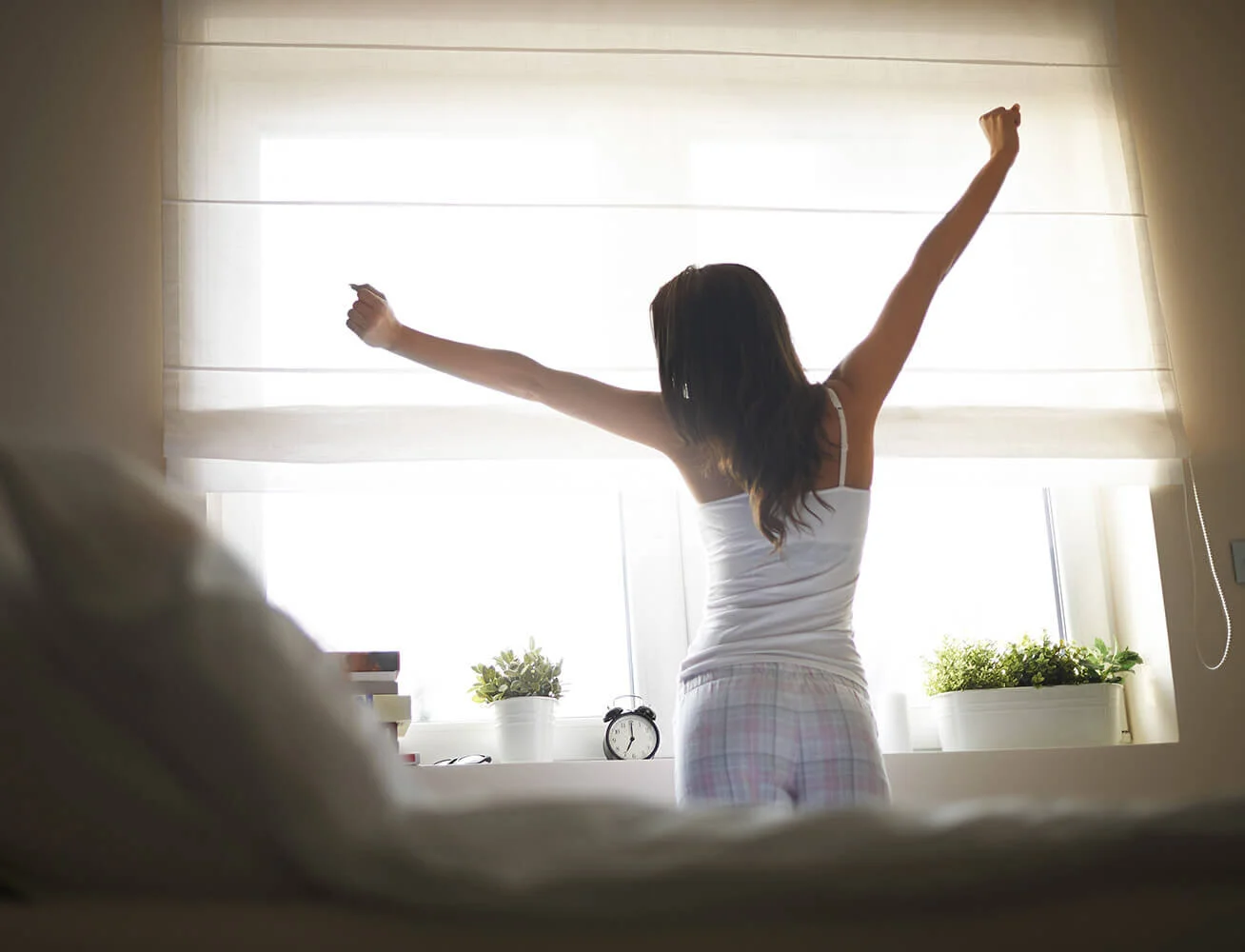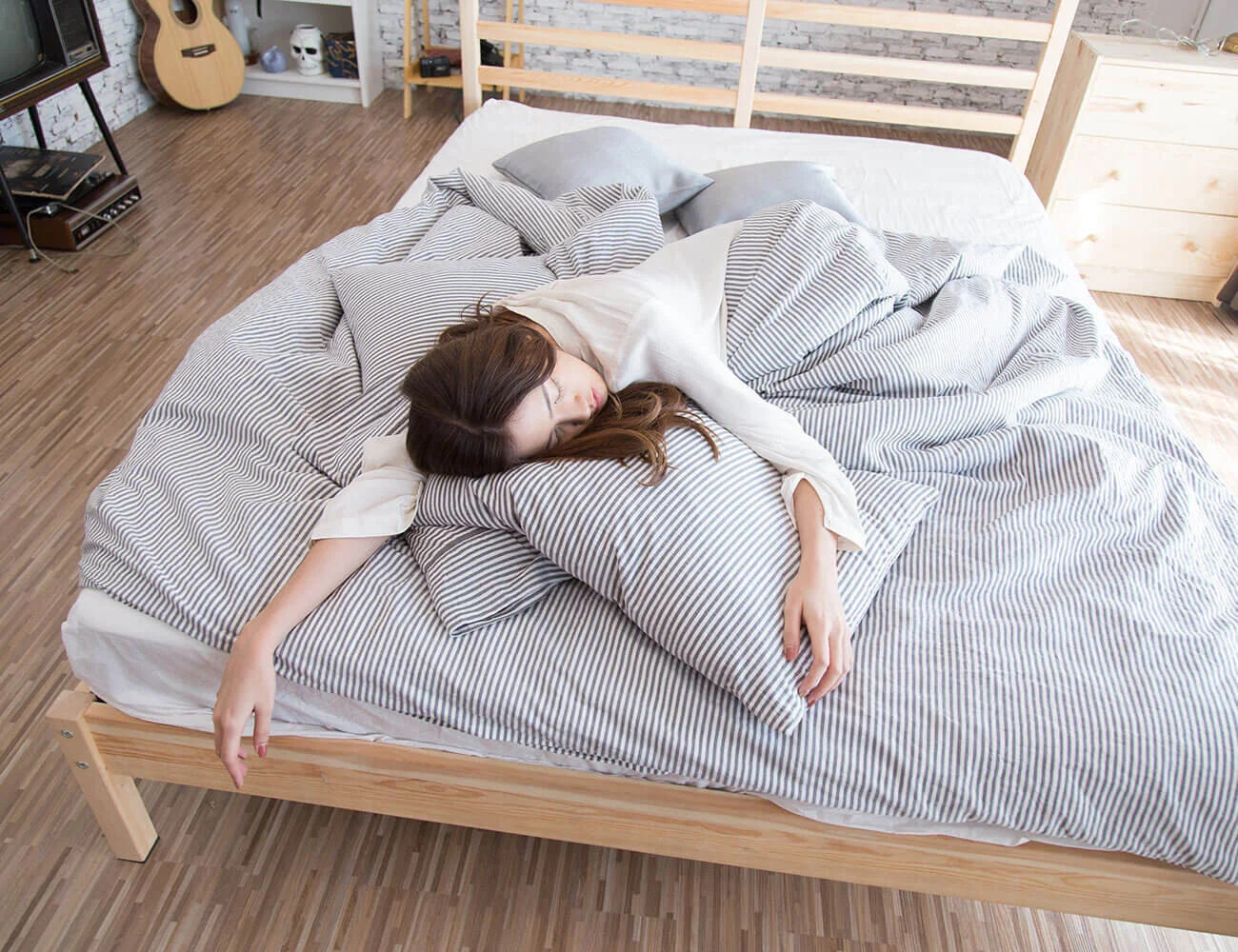Student Athletes Need More Sleep To Stay Sharp and Physically Ready
Being a student athlete, particularly a college student athlete is a big responsibility for any young person. In addition to dealing with the academic pressures associated with college—student athletes also need to deal with the rigorous training, practice and travel regimen that comes with being a college athlete.
There have been many studies on college athletes and on the demands it puts emotionally, physically and mentally on these young people. If there is one thing that all student athletes can do in order to get themselves ready for these demands is to get more sleep.
Now this can be easier said than done. College students notoriously aren’t great sleepers, and if you add the pressures of playing a college sport, then sleep tends to get tossed by the wayside. However, while many student athletes aren’t getting as much sleep as other people their age—they actually need more sleep than other young people and other adults.
Unfortunately, according to one study on college student athletes, it was discovered that about 68% of these individuals are not get enough sleep every night. Take a look at some of the research below to find out more about why student athletes need more sleep and some of the benefits that can come with getting more sleep every night.
How Much is Enough?
Student Athletes Feel Refreshed With Quality Sleep
If you ask the average college student how much sleep they are getting at night, chances are, they won’t tell you a very large number. But how much sleep should any young adult, yet alone, a college athlete be getting?
The basic recommendations for most teenagers is to get at least eight hours of sleep per night, at minimum. Most kids should attempt to get closer to 10 hours per night though, especially if they are putting their bodies through the rigors of sports.
As for younger kids who are working towards their goals of becoming big-time students athletes—they should be getting even more sleep. Kids age 6 to 13 should be getting between 10-12 hours of sleep per night.
This is particularly important during this developmental time, which can help kids develop the muscles, joint function and coordination they need to play sports—while maintaining the energy that they need to focus on their studies and handle their homework.
Risks of Insufficient Sleep
Student Athletes Perform Better With Quality Sleep
Needless to say, most student athletes aren’t getting as much sleep as they should be. Most college students may think that they are getting enough sleep because they can physically stay awake during the day. But that likely isn’t the case—even if they don’t realize it.
Sleep is the time when tissue and muscle recovery happens, and not getting enough sleep can put student athletes at risk of injury or poor recovery time.
Sleep-deprivation can cause fatigue which can lead to exhaustion and a decrease in physical and academic performance.
Students who don’t get enough sleep are more likely to suffer from depression, which is already unfortunately common in individuals of this age.
Student athletes who don’t get enough sleep have a higher chance of struggling with stress which can have emotional, physical and mental side effects.
Lack of sleep can be linked to anxiety.
According to one study of high school student athletes—researchers found that lack of sleep was the greatest predictor to injury.
It is important for all young people to be getting at least 8 hours of sleep per night if not more, and if college athletes aren’t able to get this many hours in, they may start to see some side effects.
Benefits of Getting Enough Sleep
Student Athletes Need Sleep With The Right Mattress
There are definitely risks associated with being sleep deprived—but there are also a number of great benefits that can come with getting enough sleep every night.
While most student athletes know that eating right and exercise are two very important components to superior athletic performance—but they don’t realize that sleep is the third piece of the puzzle that can help them physically handle the stressors of school and sports.
There are other great benefits of getting enough sleep as well:
Sleep can increase athletic performance including sprint and running time.
Individuals who get enough sleep tend to have a faster reaction time.
Sleep is critical for academic performance at all levels.
Getting enough sleep can lessen an individual’s chances of struggling with stress or anxiety, which can not only impact sports and academic performance—but other areas of life as well.
Sleep can help student athletes build stronger, healthier muscles as recovery time happens during sleep.
Getting enough sleep can help with injury recovery, especially in muscle and soft tissue injuries from sports.
Young people who are able to get enough sleep at night will have a stronger immune system, which can help make sure illness doesn’t get in the way of school work or athletic performance.
Whether you are a student athlete yourself or looking to help one of your kids who is balancing the demands of being a student and an athlete at the same time—understanding these benefits is essential.
How it Helps Their Game
Student Athletes Benefit With A Restful Night’s Sleep
If there is one thing that could motivate any college athlete to start turning in earlier and getting enough sleep—it would likely be learning how getting sufficient sleep can help their game.
Sleep can help give student athletes enough physical energy to perform during their practices and games, after they already spend a long day in the classroom.
This takes a great deal of both physical energy and mental fortitude, and this is something that only sleep can give a young athlete. It can’t, and shouldn’t, be replaced with caffeinated beverages.
There have even been several studies on the impact that getting enough sleep can have on student athletes. For example, one long-term study looked at the shooting accuracy of basketball players, comparing the accuracy of those who got more than the recommended 8 hours of sleep per night against those who got less. Basketball players who got more sleep were able to improve their shooting accuracy.
A similar study was done on serving accuracy among tennis players—finding that those who got more than enough sleep at night were more accurate with their serves. Getting enough sleep is about more than physical energy, it can be about having the mental focus to be more accurate with their performance as well.
Ways To Get More Sleep
Student Athletes Performance Improves With Quality Sleep
Understanding the importance of getting enough sleep is only half the battle—student athletes also need to turn those intentions into actions and actually make an effort to get more sleep each and every night. Sometimes this can be easier said than done, but here are a few tips that can help any student athlete get the sleep that they need.
Try to create an even balance during the day of sleep, school and extra curricular. This means eight hours of sleep, eight hours in the classroom and eight hours of homework, practice and other activities.
Keep a consistent schedule. This means going to bed and waking up on the same time every day (including on the weekends). This is notoriously difficult for college students but should be prioritized.
Student athletes should nap if they are feeling lethargic or tired during the day but should limit naps to 30 minutes at a time. Napping for much longer can have a negative effect of sleep patterns and actually cause you to wake up feeling more tired.
Do something relaxing (without technology) before bed to get ready for sleeping that night. Technology should be avoided, if possible, for 30 minutes before bed as blue light can actually make it difficult to fall asleep and stay asleep.
Eat a large meal at night, but try to time it for three hours before bed, don’t eat too close to bed time.
If you prefer to nap during the day, try to nap at the same time, to make it part of your sleep schedule.
Develop healthy ways to control stress—as stress is known as one of the biggest factors that can make sleep difficult for student athletes.
Avoid alcohol as much as possible (which again can be difficult for college students) as it can impact restful sleep.
Caffeine should be avoided in the afternoon and night, especially among students who struggle to fall asleep within a few minutes of laying down.
There are many student athletes who struggle with the demands of practice, travel, class and homework, and when it comes to sacrificing something to make room for everything—many times, sleep is the first thing to go. This is why it is important to keep these tips in mind and for all student athletes to make sure that they are making sleep a priority.
Student Athletes Improve Performance In The Classroom and Their Game With More Sleep
Understanding the why behind getting enough sleep is an important first step in any student athlete’s quest towards a healthier sleep schedule. With proper sleep, in the right sleep environment, many student athletes will not only find they perform better in the classroom—but that their game improves as well.
They can enjoy more focused play, quicker reaction times and faster workout recovery. Of course, getting enough sleep can also help with the immune system which will keep students healthy whether they are hitting the pitch or hitting the books for a late night.
Rebekah Pierce is a professional social blogger and has worked on several online publications including Citrus Sleep. Rebekah is an experienced content writer and copyeditor. You will find many of her works throughout CitrusSleep.com that cover a wide array of subjects including sleep education, natural, sleep products, electronics, fashion and many more. She is passionate about her work and family.
Follow Lisa at Rebekah Pierce











